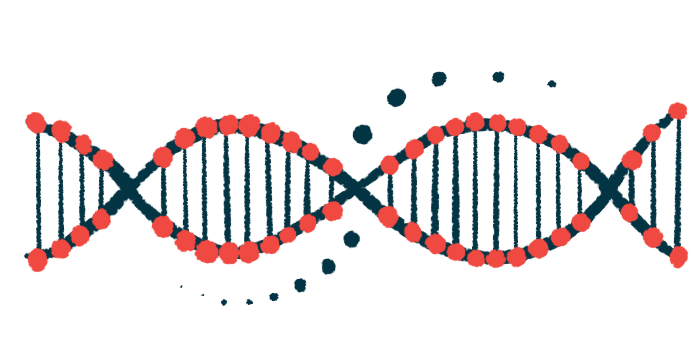Loss of Non-coding RNA May Underlie Brain Alterations in PWS
Lab research sheds light on cognitive and behavioral symptoms
Written by |

The loss of certain genetic material called non-coding RNA might lead to the disruption of genes important for brain development and function in Prader-Willi syndrome (PWS) , a study found.
These alterations could underlie the cognitive and behavioral symptoms of the disease, according to researchers.
The study, “Non-coding RNAs Associated with Prader-Willi Syndrome Regulate Transcription of Neurodevelopmental Genes in Human Induced Pluripotent Stem Cells,” was published in the journal Human Molecular Genetics.
PWS is caused by the loss of, or defects in, genes that normally reside in a region of chromosome 15 called the PWS locus. While some of these genes are involved in directly producing a protein product, others are non-coding, meaning they don’t directly produce a protein, but serve other regulatory functions like determining when, where and how much of a protein is produced.
As a consequence of losing the PWS locus, alterations are observed in certain gene levels in the brain. Specifically, brain tissue from PWS patients showed increases in genes involved in hunger and inflammation, and decreases in ones critical for nerve cell development and cell-to-cell communication.
However, it remains unclear which disrupted genes in the PWS locus might be responsible for these brain changes. It’s been hypothesized that the loss of certain non-coding elements, called long non-coding RNA (lncRNA), in PWS could be the culprits.
These lncRNAs, specifically sno-lncRNAs and SPA-lncRNAs, generally act by binding to a target molecule and regulating its expression. But for many non-coding elements in the PWS locus, their target has yet to be identified and their specific biological role is poorly understood.
The research team in the U.K. hypothesized that the loss of sno-lncRNAs and SPA-lncRNAs in PWS affects the production of brain proteins.
To test this, they first measured the levels of these molecules in cell cultures derived from healthy human stem cells. They found that non-coding RNA molecules were expressed abundantly in these cells.
Converting DNA
They also observed evidence indicating that the molecules were involved in regulating transcription, the process of converting DNA to an intermediate transcript called messenger RNA that is then used to produce a protein.
That finding suggests that the lncRNAs may “play roles in the activation of neighbouring or distant genes,” the researchers wrote.
Consistent with that hypothesis, when the cells were depleted of sno-lncRNAs and SPA-lncRNAs in the lab, the researchers found that levels of certain classes of genes were affected.
Specifically, genes involved in neurodevelopment and communication of nerve cells were decreased, as has been observed in tissue from PWS patients.
There also was an increase in genes involved in apoptosis (programmed cell death, as opposed to cell death caused by injury) and in regulating cellular metabolism.
The data indicate that “SPA- and sno-lncRNAs may be required to maintain the correct transcription of neurodevelopmental genes,” the researchers wrote. These errors in transcription may “accumulate during development and, as a consequence, manifest as PWS.”
“We conclude that [non-coding RNAs] transcribed from the PWS locus are critical regulators of a transcriptional signature, which is important for neuronal differentiation and development,” the team wrote.






